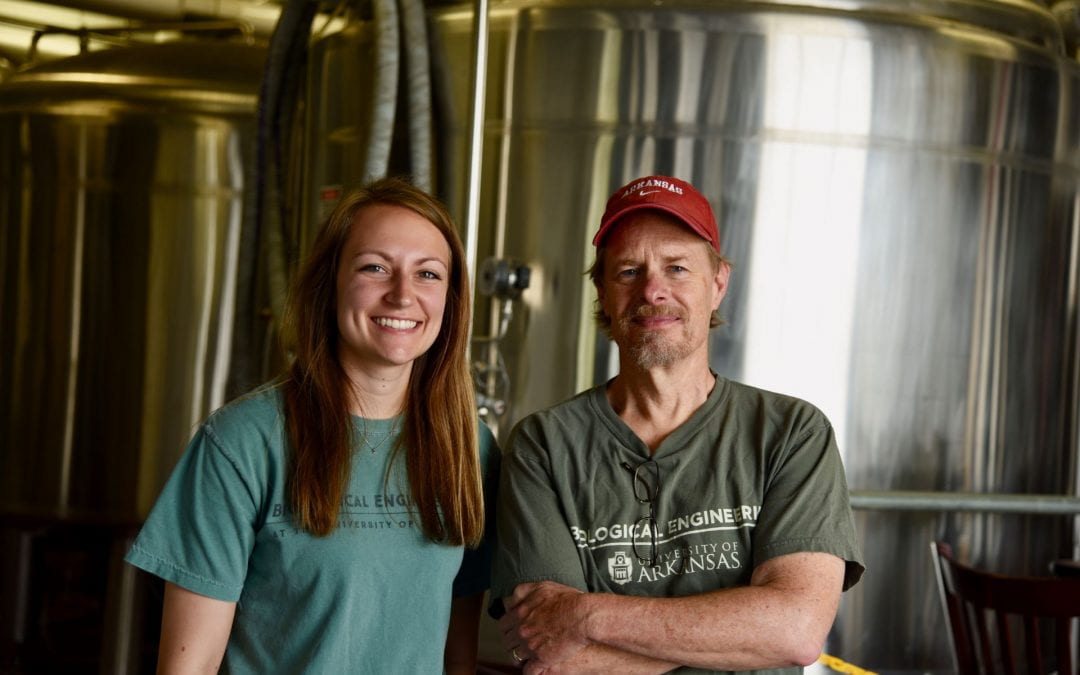Pictured above: Lydia Huck and Associate Professor Scott Osborn at Core Brewing in Springdale, Arkansas. As a senior, Lydia Huck worked alongside, Natalie Von Tress, Zack Wofford and Kaylyn Zuech to help a Northwest Arkansas brewery save millions of gallons of water in the production process.
CORE BREWING, an Arkansas-based craft beer producer, had an opportunity: They were using nearly 2 million gallons of water through the brewhouse annually, and wanted to better conserve this precious natural resource. It wasn’t just water going down the drain – that wasted water meant wasted money, too.
The team of engineering students took on the problem as part of their capstone design experience. It’s a two-semester project where student groups are paired with a client with a real need for a design. The first semester is used to research the client and problem, including discovery of relevant technologies and new analyses to support the design process. The second semester is devoted to detailed design.
Team members measured total water use for Core and identified an ineffective heat exchanger causing a significant waste of potable water during the “knockout process,” in which wort is quickly cooled before fermentation. Zuech noted “after we conducted a water audit, the head brewer was really surprised at how much potable water they were discharging.”
The team analyzed alternatives and ultimately identified changes to the brewery’s operation that cost about $11,000 up-front, but would save about $5,000 annually in operating costs, saving 1.3 million gallons of water each year.
“We worked hard to analyze the heat exchanger to see how to optimize its performance to save water and reduce costs without affecting the quality of the beer,” Huck said.
The brewing industry’s average ratio of [total water consumed] to [beer produced] is 6.0 L/L. The recommendations would lower Core Brewing to a ratio of 3.4 L/L, positioning them as one of the leaders in sustainability practices in the industry.
For Huck, who graduated in May, the experience pushed her out of her comfort zone. “What made it such a rewarding project was all the uncertainties and unknowns on a bigger scale than any technical project we had ever done,” she said. “There was one obstacle after another. We had a good foundation, but weren’t used to complexity on that scale. But we did it—designed a system that could save the client millions of gallons of water.”
Jesse Core, founder of Core Brewing, said he was appreciative of the team’s work.
“The team did a fantastic and detailed job to help us become more sustainable, save money and improve operations. I’m taking their report to my board to discuss implementing their recommendations,” he said.
Tom Costello, associate professor of biological engineering, who coordinates senior design for the program, said the projects prepare students to solve big problems.
“Our students develop a can-do attitude–they are ready and willing to learn new things and tackle new problems,” he said. “We need young biological engineers to step up and make an impact in our world.”
“As a faculty member, nothing is more rewarding than watching these students take on the big challenges that our world faces,” said Scott Osborn, associate professor of biological engineering and team mentor.


